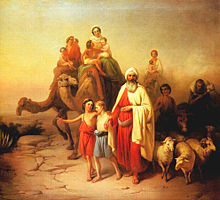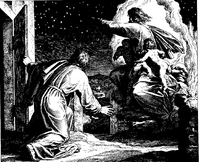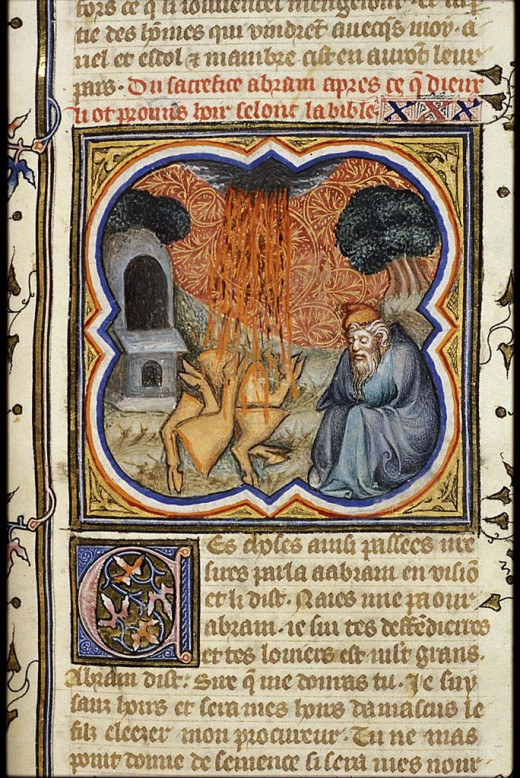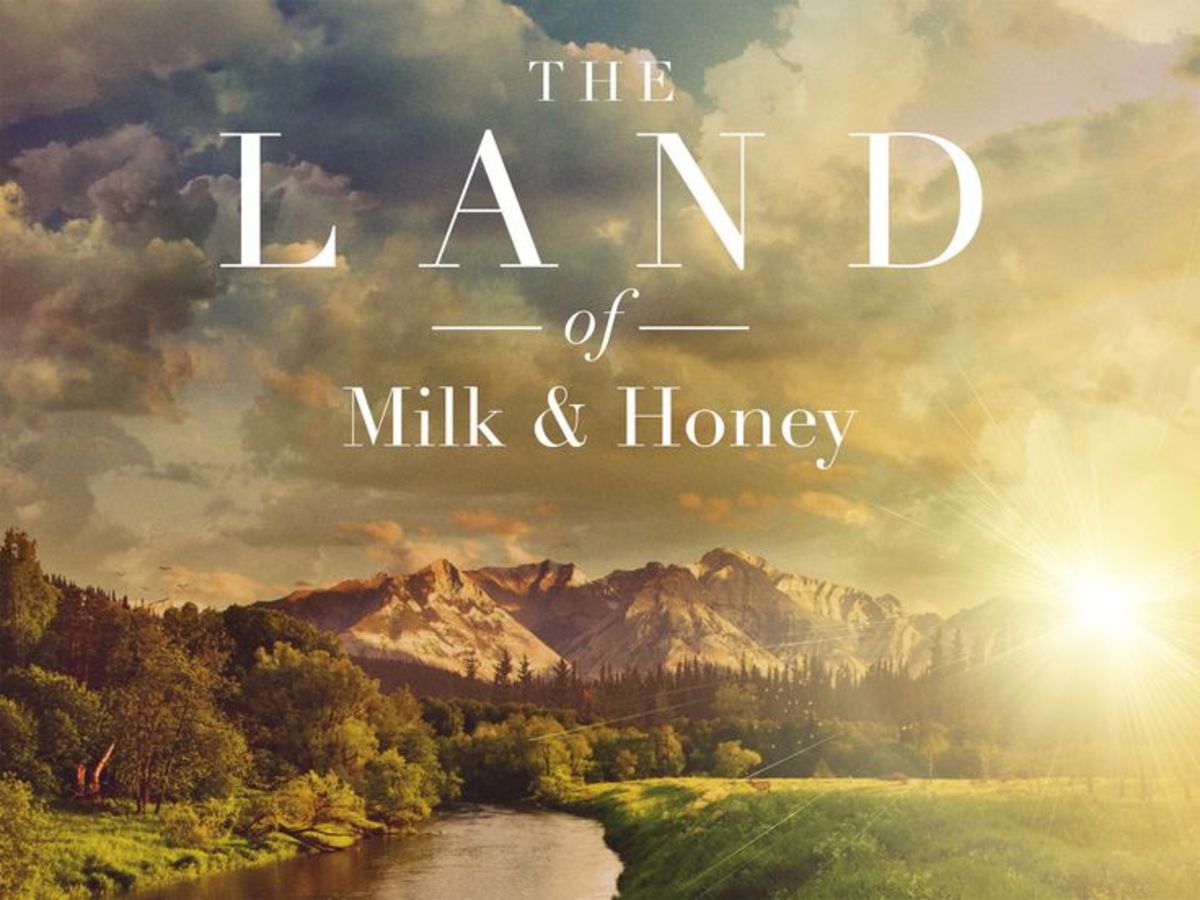Bible: What Do Genesis 12, 15 Teach Us About the Abrahamic Promise and Covenant?
Abraham and Family

Justification: By Faith Alone?
Do you think people make it to heaven by trusting God's promise or by earning it at least in part?
John MacArthur
The Abrahamic Promise and Covenant
Genesis 12
Yahweh Calls Abram Out of Mesopotamia
Moses now narrows his account even further to the history of one man, Abram, who had received Yahweh’s command to leave everything he owned and everyone he knew—his country (Mesopotamia/Ur; cf. Acts 7:2, 3), his family, his father’s house—and travel to another land, the name of which the LORD does not disclose (v. 1).
[Stephen relates that Abram received this word from God to leave Mesopotamia before he came to Haran (see Acts 7:2, 3). Abram must have told God’s directive to Terah; Terah, for his part, chose to go with him (see 11:31). Haran was only a stopping-off place on the way to Canaan].
God makes a three-fold unconditional promise to Abram: He will (1) make him a great nation; (2) make his name great; and (3) make him a blessing (v. 2). In addition, Yahweh will befriend Abram’s friends, but curse his enemies; in the end, every “family of the earth” (people-group?) will benefit greatly from Abram’s life (“in you”) [v. 3].
The first part of verse four states that Lot accompanied Abram, agreeing with Genesis 11:31; the second part of the verse, however, relates Abram’s age when he left Haran, not Mesopotamia.
[Could these two parts of the verse be talking about two different departures?]
Abram packs away his possessions and his people, and they all relocate to Canaan. Traveling through Shechem, he finally reaches the landmark terebinth at Moreh (vv. 5-6).
After Yahweh appears to him at Moreh and promises to give his descendants (“seed”) the land he sees, Abram builds an altar to honor Him and then moves on to a mountainous area with Bethel on one side and Ai on the other (vv. 7-8a; cf. Gal. 3:16). Every place he pitches his tent Abram constructs an altar to Yahweh (v. 8b). His journey continues toward the Negev (v. 9).
Famine in the Land forces Abram to enter Egypt (v. 10). To prevent his murder, he tells his beautiful wife Sarai to inform potential suitors that she is his sister (vv. 11-13). [If she told them that Abram was her husband, then they would kill him in order to acquire her]. As foreseen, certain well-connected government officials see Sarai and take her to Pharaoh, who offers brother Abram great wealth in beasts and slaves (vv. 14-16). After Yahweh strikes Pharaoh and his house with hardship and plagues for adultery, the king learns of Abram’s deception and confronts him about it (vv. 17-19). Abram leaves the court of Pharaoh chastened, but also much wealthier (v. 20).
Lesson Outline
The Abrahamic Covenant
Definitions of covenant:
1) A formal (i.e., it involves the use of rules and certain procedures), divinely-instituted plan in which God reveals specific purposes in the destinies of individuals or groups.
2) A solemn promise made binding by an oath which may be either a verbal formula (Gen. 12:1-3) or a symbolic action [karath berith- to "cut" a covenant (Gen. 15:18)].
I. Yahweh made a promise to Abraham (Gen. 12:1-3).
A. It dealt with literal physical and spiritual blessings.
1. To Abraham (v. 2)
2. To his descendants (v. 2)
3. To Gentiles (v. 3) How blessed/cursed?
B. It was unconditional and unilateral.
1. God said, "I will," not "if . . . then." (See also 13:14-17; cf. Ex. 19:5-6).
2. God "cut" the covenant by Himself (see Gen. 15:12, 17).
C. It involved three concerns.
1. The land-see D. 2 below
2. Descendants--Who is/are the seed/descendants of Abraham? (Gal. 3:16, 29)
3. Blessing to the nations/families of the earth (see Gal. 3:8)
How does one become a son of Abraham? (See Gal. 3:7; Rom. 4:11)
D. Further Amplification
1. Descendants will include kings (Gen. 17:6; see also 2 Sam. 7:12-16).
2. The inheritance (land) is everlasting (Gen. 17:8), but present possession is conditioned upon repentance (Deut. 30:1-10).
Yahweh: "Abram, Count the Stars!"

The Content of Abraham's Faith
view quiz statisticsGenesis 15: Abraham Justified By Faith Alone
Genesis 15
Yahweh answers Abram’s faithfulness to Him in a vision, calling Himself Abram’s “shield” and “exceedingly great reward” (v. 1; cf. 14:23).
The patriarch fails to see what God can give him that would benefit him as an old man without a real heir (vv. 2-3).
In response, the LORD asks Abram to trust Him to do a physiological miracle in his body (v. 4).
Not only will God enable Abram to beget a son, but (seeking to stretch his faith) He also promises him that his descendants will rival the stars in number (v. 5).
The moment of Abram’s justification and regeneration comes with his belief in that promise (v. 6; cf. Rom. 4:2, 3, 19-22).
Having established a personal relationship with Abram, Yahweh reintroduces Himself to His servant as the One who will give him the Land (v. 7).
[Even after God designates Himself as Yahweh Elohim, Abram does not address Him as such; he still calls Him Adonai Elohim (v. 8a; cf. v. 2)].
Abram’s questions about this inheritance yet remain (v. 8b).
To prove to Abram that the land will belong to his descendants, the LORD initiates a covenant ritual involving the sacrifice of various animals that He asks Abram to bring to Him (vv. 9-11; cf. Jer. 34:18-19).
"Cutting" the Covenant

Floyd Nolen Jones
With the night, a deep sleep, and horror and great darkness all falling on old man Abram at the same time, Yahweh foretells not only the four hundred year servitude of the patriarch's descendants in a foreign land, but also their redemption from and enrichment through the divine judgment of that host nation (vv. 12-14).
[See Floyd Nolen Jones for an explanation for how long “they” [the Egyptians] actually ruled Abram’s seed (Chronology of the Old Testament, 59).]
He also informs Abram that he will die before that time, of course, but his descendants will return to the Land to judge the Amorites (vv. 15-16; cf. Heb. 11:13).
As Abram sleeps, Yahweh alone passes through the midst of the animal carcasses, appearing as a smoking oven and a burning torch (v. 17).
The Land—extending from the Nile to the Euphrates—now belongs to Abram by divine grant (vv. 18-21).
[The fact that the LORD made this covenant with Abram unilaterally—that is to say, without the patriarch’s conscious involvement—shows the certainty of its fulfillment; unlike the Mosaic covenant, God unconditionally guarantees that the Abrahamic will see ultimate fulfillment].
© 2012 glynch1










